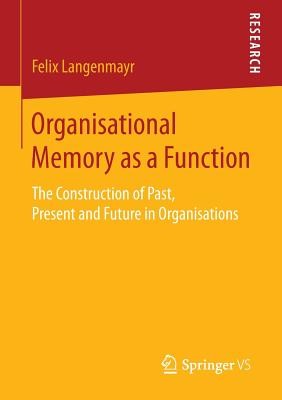
- We will send in 10–14 business days.
- Author: Felix Langenmayr
- Publisher: Springer vs
- Year: 2016
- Pages: 180
- ISBN-10: 3658128674
- ISBN-13: 9783658128678
- Format: 14.8 x 21 x 1.1 cm, minkšti viršeliai
- Language: English
- SAVE -10% with code: EXTRA
Reviews
Description
This book is about the past as well as the future in organisations in general and about an organisation's temporal contextualisation in particular. The author analyses, how organisations are able to construct a present with respect to their past and future. The study is based on an empirical case study, in which an R&D department has been followed for a six month-period in order to analyse how an organisation orients itself with respect to its past, present and future from the perspective of communication-centred social systems theory.
EXTRA 10 % discount with code: EXTRA
The promotion ends in 23d.03:03:13
The discount code is valid when purchasing from 10 €. Discounts do not stack.
- Author: Felix Langenmayr
- Publisher: Springer vs
- Year: 2016
- Pages: 180
- ISBN-10: 3658128674
- ISBN-13: 9783658128678
- Format: 14.8 x 21 x 1.1 cm, minkšti viršeliai
- Language: English English
This book is about the past as well as the future in organisations in general and about an organisation's temporal contextualisation in particular. The author analyses, how organisations are able to construct a present with respect to their past and future. The study is based on an empirical case study, in which an R&D department has been followed for a six month-period in order to analyse how an organisation orients itself with respect to its past, present and future from the perspective of communication-centred social systems theory.


Reviews